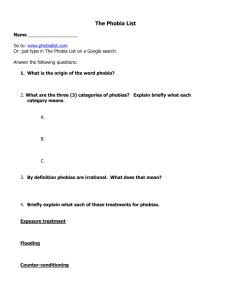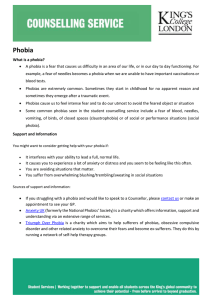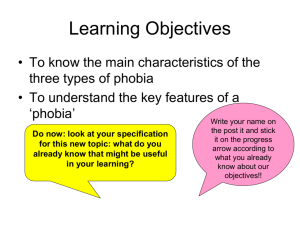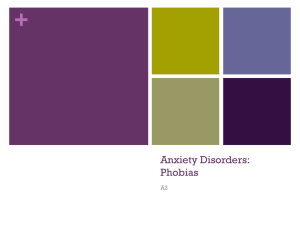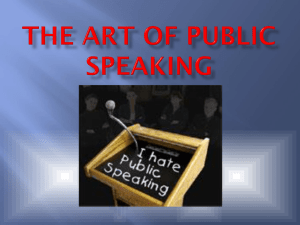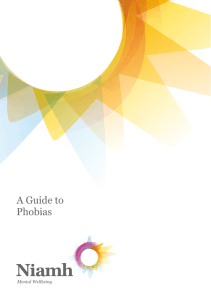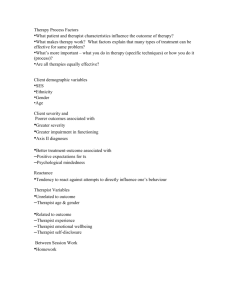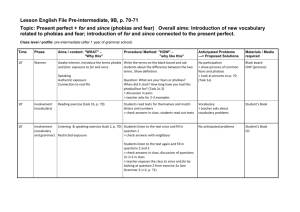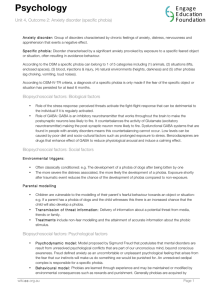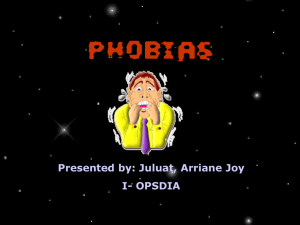Treatment
advertisement
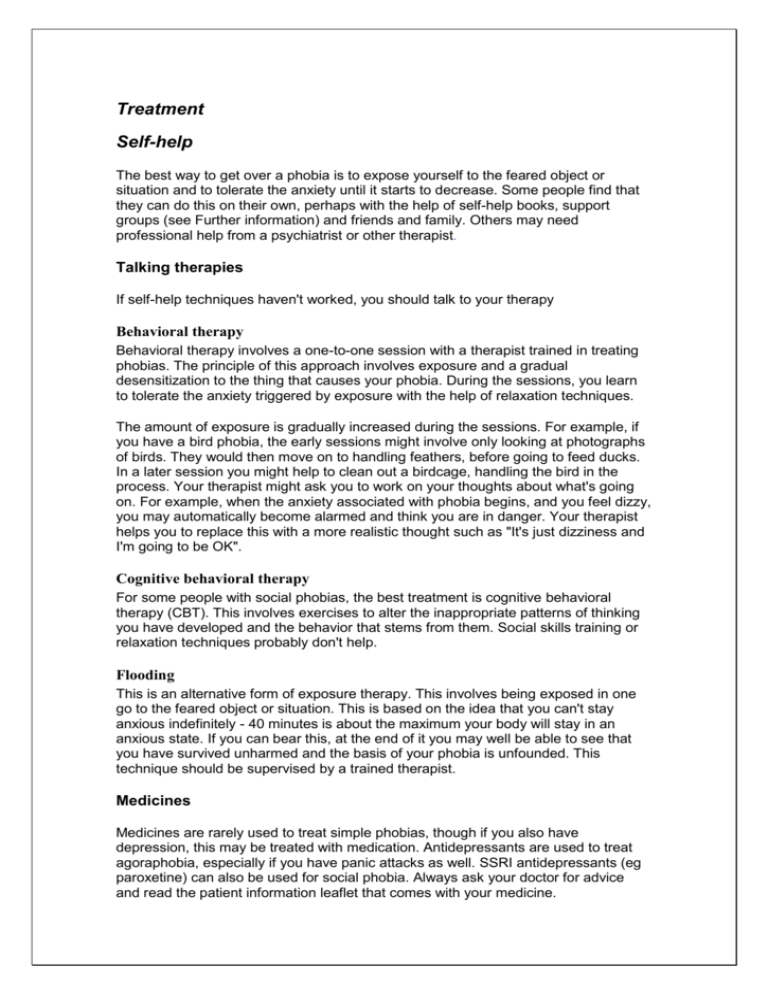
Treatment Self-help The best way to get over a phobia is to expose yourself to the feared object or situation and to tolerate the anxiety until it starts to decrease. Some people find that they can do this on their own, perhaps with the help of self-help books, support groups (see Further information) and friends and family. Others may need professional help from a psychiatrist or other therapist. Talking therapies If self-help techniques haven't worked, you should talk to your therapy Behavioral therapy Behavioral therapy involves a one-to-one session with a therapist trained in treating phobias. The principle of this approach involves exposure and a gradual desensitization to the thing that causes your phobia. During the sessions, you learn to tolerate the anxiety triggered by exposure with the help of relaxation techniques. The amount of exposure is gradually increased during the sessions. For example, if you have a bird phobia, the early sessions might involve only looking at photographs of birds. They would then move on to handling feathers, before going to feed ducks. In a later session you might help to clean out a birdcage, handling the bird in the process. Your therapist might ask you to work on your thoughts about what's going on. For example, when the anxiety associated with phobia begins, and you feel dizzy, you may automatically become alarmed and think you are in danger. Your therapist helps you to replace this with a more realistic thought such as "It's just dizziness and I'm going to be OK". Cognitive behavioral therapy For some people with social phobias, the best treatment is cognitive behavioral therapy (CBT). This involves exercises to alter the inappropriate patterns of thinking you have developed and the behavior that stems from them. Social skills training or relaxation techniques probably don't help. Flooding This is an alternative form of exposure therapy. This involves being exposed in one go to the feared object or situation. This is based on the idea that you can't stay anxious indefinitely - 40 minutes is about the maximum your body will stay in an anxious state. If you can bear this, at the end of it you may well be able to see that you have survived unharmed and the basis of your phobia is unfounded. This technique should be supervised by a trained therapist. Medicines Medicines are rarely used to treat simple phobias, though if you also have depression, this may be treated with medication. Antidepressants are used to treat agoraphobia, especially if you have panic attacks as well. SSRI antidepressants (eg paroxetine) can also be used for social phobia. Always ask your doctor for advice and read the patient information leaflet that comes with your medicine. Your doctor may prescribe anti-anxiety medicines called benzodiazepines (such as diazepam) to ease symptoms in the initial stages of a psychological programme. However, you can only take these for short periods because they can lead to dependence. Other medicines, called beta-blockers (e.g. propanolol), are sometimes used to reduce the symptoms of anxiety and have also been used together with psychological treatment programmes. Social phobias can be treated with SSRI antidepressants such as Prozac. However, treatment with medicines alone is usually not enough to treat your phobias effectively.
